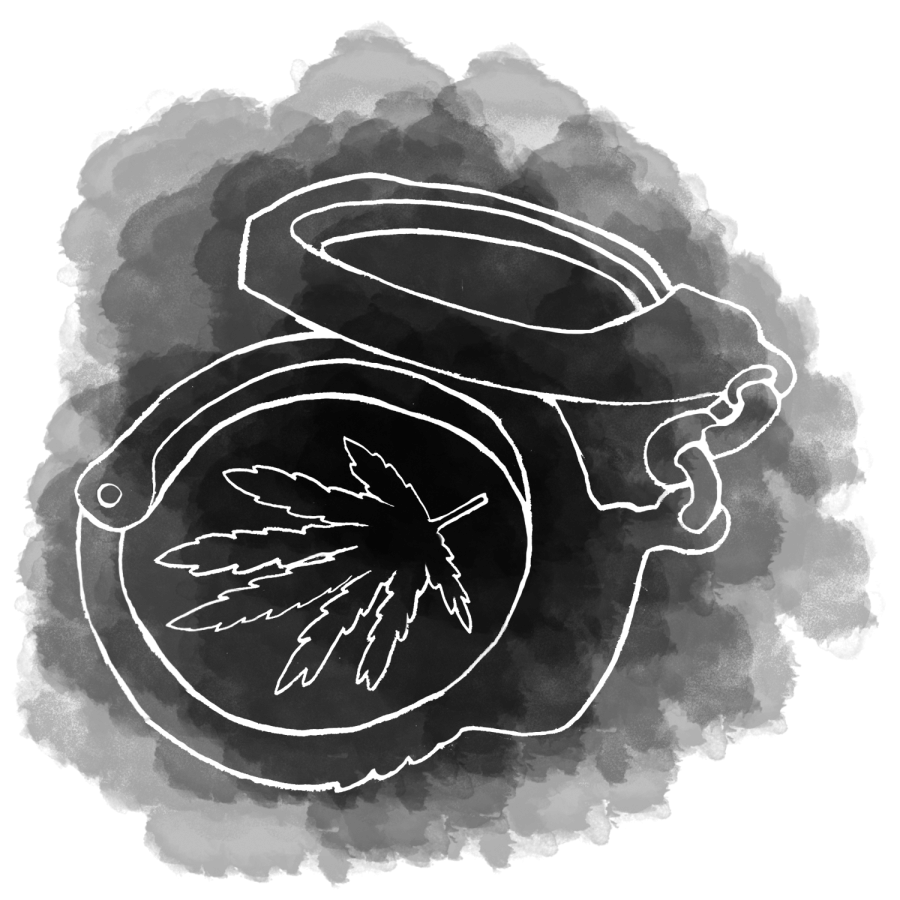Marijuana pardons give student voters high hopes but limited action
October 22, 2022
On Oct. 6th, President Biden pardoned low-level marijuana possession charges. However, the President’s recent pardons are only a reflection of the Biden administration’s attempts to satisfy the voter base for upcoming midterm elections rather than a genuine interest in revolutionizing the legal precedents surrounding marijuana use.
Marijuana use is currently legal in many states, including Illinois. Despite this, places that receive federal funding, such as schools or parks, may still issue an arrest for marijuana possession because it is illegal according to the federal government.
Augustana College is no different, for marijuana is prohibited on campus since it receives federal funding as a private institution.
Biden’s pardon of marijuana possession charges does not account for marijuana use, meaning that the pardon doesn’t go far enough.
“The White House estimates that about 6,500 people nationwide have federal convictions for simple possession of marijuana on their records since 1992 [however] White House officials said there are no individuals currently in federal prison solely for simple possession of cannabis,” Perry Stein said, who is a Washington Post reporter that specializes in reporting on the justice department.
The pardons primarily impact those who have been convicted in the past and do not work toward those who are currently imprisoned for marijuana-use offenses. This means that this fights the current system of marijuana criminalization on a surface level but does not address the issues that are causing a drug that is legal for recreational use in most states to lead to mass imprisonment in others due to its use.
With this in mind, the timing of the pardoning announcement is also a factor to consider when determining its intention. Presidential midterm elections are on Nov. 8 and the announcement was made on Oct. 6, followed by Biden calling for state governors to pardon inmates convicted of marijuana possession charges.
In his Tweet about the low-level marijuana possession charge pardons and their benefits, Biden calls fellow politicians to do the same.
“There are thousands of people who were previously convicted of simple possession who may be denied employment, housing or educational opportunities as a result,” Biden said, according to Kaitlin Lewis, a Newsweek reporter. “My pardon will remove this burden.”
The month-long period between now and the midterm elections, in addition to the public call to action issued to state governors by the Biden administration, evokes political motivations instead of a tangible effort to decriminalize marijuana. This is supported by his rapid transition from the “personal opposition to weed legalization [during his campaign]” to pardoning a low-level marijuana offense, as is said by Karl Evers Hillstrom, a staff writer at the Hill.
Biden needs to do more than simply create surface level pardons that do little good.
Despite his apparent moves towards legalizing the drug, these pardons aren’t as significant as younger voters may think.
The criminal records will not be expunged and state governments have communicated no action has been taken to pardon additional offenses.
This means that the same issues those convicted of marijuana-related crimes face now will not change any time in the future based on these pardons or Biden’s directive toward state governors, even if he says otherwise.
While this action does echo the promises made during Biden’s presidential campaign, marijuana possession is still illegal on a federal level despite these pardons. The impact of the pardons is limited as it only applies to possession charges, it appears to have political motivations rather than being a genuine cry for change, and is overall unable to have the benefits it promises.
Therefore the unlikeliness that these pardons will make a difference in the long term in the call for marijuana legalization should be considered by voters in the upcoming midterm elections.


































































































